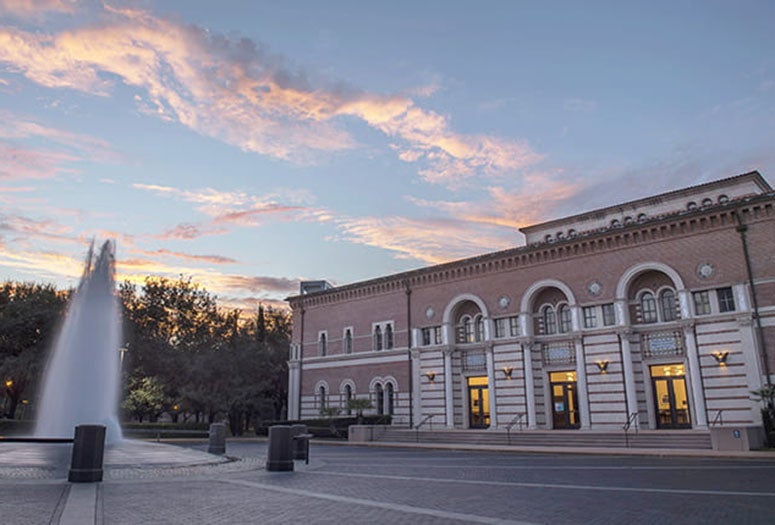HOUSTON – (Aug. 10, 2020) – Different countries will respond in different ways to the challenges of economic growth and environmental sustainability based upon their regional advantages, according to a new paper by an expert in the Center for Energy Studies at Rice University's Baker Institute for Public Policy.
The COVID-19 pandemic has added pressure to governments on both fronts, wrote Ken Medlock, a fellow in energy and resource economics at the Baker Institute and senior director of its Center for Energy Studies. His paper, "Energy Transition, COVID-19, Comparative Advantage, and a World of Uncertainty," was published in the July issue of the Oxford Institute for Energy Studies Forum.
“In the wake of the COVID-19 pandemic and resultant economic crisis, governments in many regions are looking for ways to simultaneously address economic and environmental concerns in their recovery efforts," Medlock wrote. "Whether this is fiscally prudent, or even feasible, remains to be seen, and it is likely that outcomes will differ from region to region."
Medlock described the energy industry as "a world of 'haves' and 'have-nots.'" He said comparative advantage will ultimately define how transitions happen in different parts of the world.
The Organization of Economic Cooperation and Development (OECD) is a collection of nations “at the center of global discourse on economic growth, industrial activity, international trade and geopolitics” — the "haves" — that represents about 1.3 billion people, Medlock wrote. He noted, however, that non-OECD nations — the "have-nots" — are growing rapidly and several have emerged as major global players.
“Non-OECD countries make up a large group of less-developed and developing nations that account for about 6.4 billion people, about five times the population of the OECD," he wrote. "As these countries develop, all matters related to energy, environment, health and the economy will take on different dimensions in the global context. This is especially true for energy.”
A portfolio of options is available for a lower-carbon energy future, but "not every option in the portfolio is suitable everywhere," Medlock wrote. "For instance, certain regions are favorable for a build-out of intermittent renewable resources that can leverage transmission connections to large hydropower resources for load stability. Some regions can leverage ample solar resources alongside low-cost natural gas to fuel economic activity; others have geologic advantages co-located with large industrial complexes that could make hydrogen with carbon capture and sequestration an attractive option; and still others have a wealth of renewable resources that could be leveraged to generate hydrogen through electrolysis. In either of the latter two cases, hydrogen could then be used to fuel transportation and/or store energy.
"Finally, there are some regions with very-low-cost fossil energy resources that will continue to leverage their comparative advantage in those industries, even when fossil fuel use eventually declines, largely because the decline will not happen overnight," he wrote.
Medlock concluded: “Only by recognizing regionally distinct comparative advantages will least-cost outcomes be achieved. In turn, this will cause the energy transition to look different everywhere and to be resilient in providing economic opportunities. Absent this, the energy transition will occur in fits and starts, and will do little to change the global energy mix in the near to medium term.”
-30-
To schedule an interview with Medlock or for more information, contact Avery Franklin, media relations specialist at Rice, at averyrf@rice.edu or 713-348-6327.
Related materials:
Paper: www.bakerinstitute.org/media/files/files/df1ce7fb/oxford-inst-economic-studies_ukGyJvg.pdf.
Medlock bio: www.bakerinstitute.org/experts/kenneth-b-medlock-iii.
Follow Rice News and Media Relations via Twitter @RiceUNews.
Follow the Baker Institute’s Center for Energy Studies via Twitter @CES_Baker_Inst.
Founded in 1993, Rice University’s Baker Institute ranks as the No. 2 university-affiliated think tank in the world and the No. 1 energy think tank in the world. As a premier nonpartisan think tank, the institute conducts research on domestic and foreign policy issues with the goal of bridging the gap between the theory and practice of public policy. The institute’s strong track record of achievement reflects the work of its endowed fellows, Rice University faculty scholars and staff, coupled with its outreach to the Rice student body through fellow-taught classes — including a public policy course — and student leadership and internship programs. Learn more about the institute at www.bakerinstitute.org or on the institute’s blog, http://blog.bakerinstitute.org.

